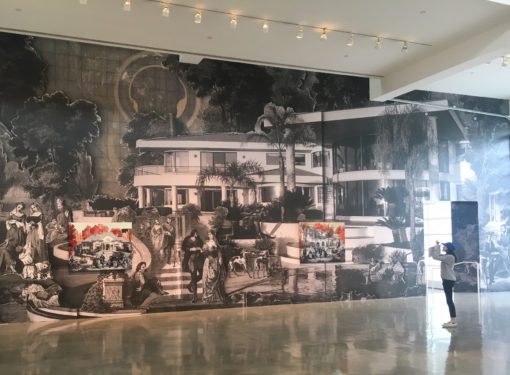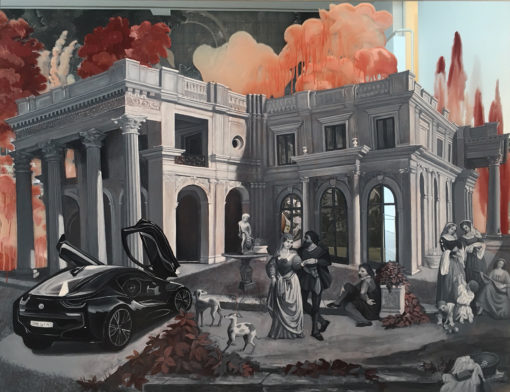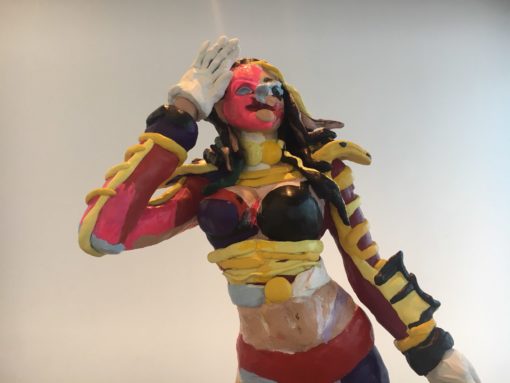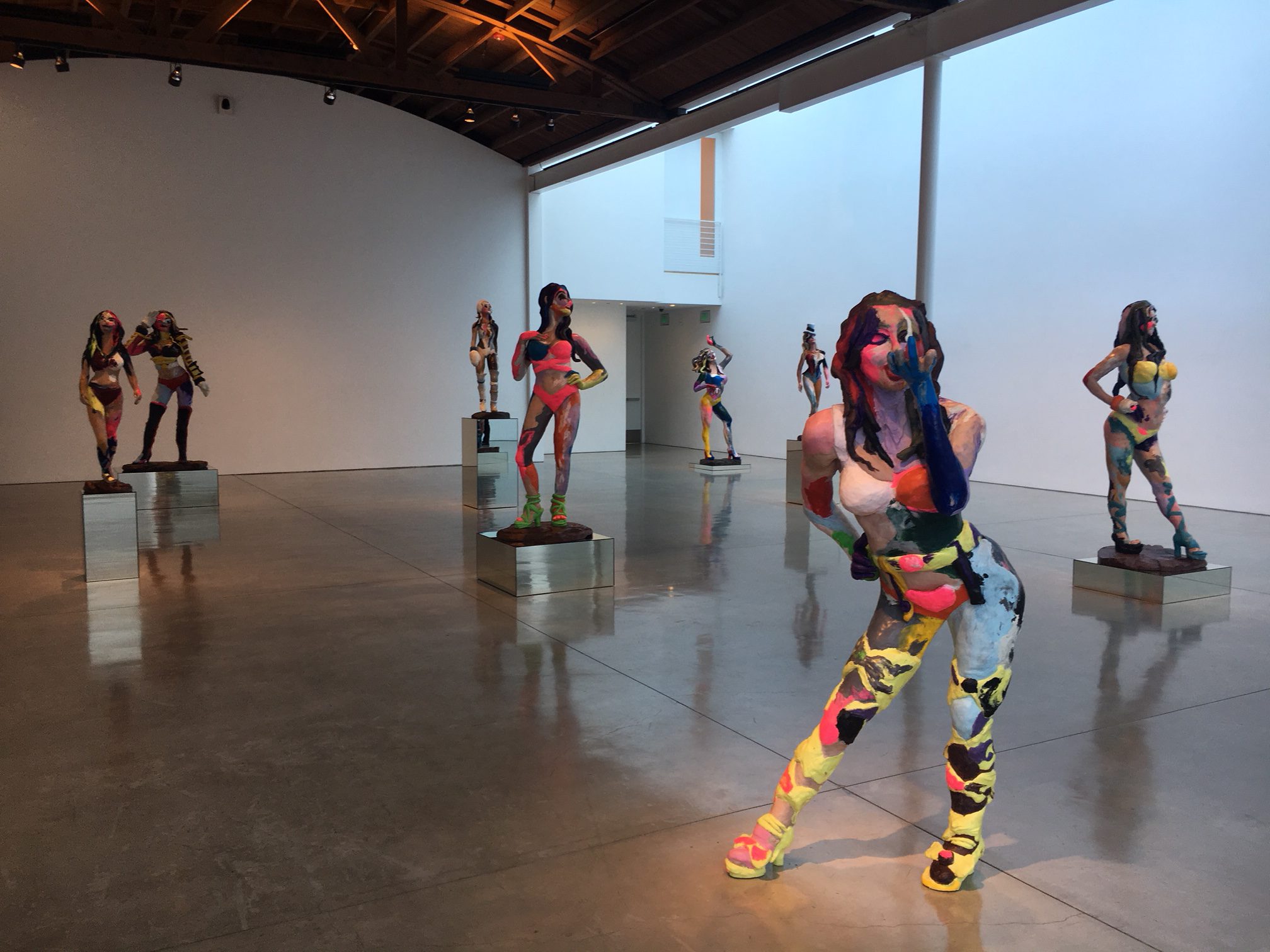Times change. In 1963, Hannah Arendt famously wrote about Adolf Eichmann and the “banality of evil”; in 2018 we get artist Rachel Feinstein exploring the evil of banality. It’s not just that the pieces at Secrets, her latest show at Gagosian, are banal, they’re aggressively so. Unfortunately, that’s why the deepest aspect of the work is her unforgiveable intent to aesthetically defraud the audience. In the press release for the show, Feinstein is quoted as being “interested in portraying some kind of fantasy, then showing it’s completely constructed.” With only her current show of paintings and sculptures to prove this dictum, it appears that the artist needs a new fantasy, or some serious mental Botox to feel better about the one she’s putting on public display.

Painting installation view
Her oil enamel paintings on mirrors bring the viewer to places unstuck in time, and the anachronisms contained therein present a world that exists solely for the display of conspicuous consumption. In the painting Sunset Blvd., a contemporary gull-wing sports car is parked in the driveway of a Classical mansion as two 17th Century courtiers and their dogs prepare for a day in the country. There’s not much going on conceptually in the work, as the juxtaposition of old and new high-class shenanigans is banal territory already over explored without Feinstein’s weak addition to the subject. Artistically, the work fares no better; the figures and architecture are painted in a bland representational style, and the clouds and vegetation worked so crudely as to be merely suggestive of what they are. But to give credit where credit is needed, the use of a mirror as a base for the painting does obliquely involve the viewer in the proceedings; even if it’s only to adjust makeup or check yourself out.

Sunset Blvd., oil enamel on mirror, 42 x 54 inches, 2018
Moving for relief to the other room to view the second part of Feinstein’s show only deepens the feeling of ill-intentioned banality. Her eight figurative sculptures of women that “reflect on the Victoria’s Secret phenomenon” may “reveal perfection as a form of burlesque”, but they only prove how acts of aesthetic evil can become commonplace if repeated enough. Any technological failing can be justified if presented openly and defended as artistic expression, so Feinstein’s lack of concern with “verisimilitude or refinement” becomes a commentary on, not ugliness, but anti-beauty. To make the repulsion even more impressive, the figures are rendered at just above human scale; the hands of Bandleader appearing as grotesquely large gardening gloves, the face so clowned-out as to appear unhuman.

Bandleader, hand applied color resin over foam, 76 x40 x30, 2018
Feinstein claims her sculptures “cannibalize notions of beauty” and that the paintings update “historical European Luxury.” But claiming isn’t the same as explaining, and as Arendt points out, “storytelling reveals meaning without committing the error of defining it.” So, with no stories told in Feinstein’s exhibition, there remains nothing to define and no meaning to be found; its like a bedtime story that begins with “The End”.
RACHEL FEINSTEIN
SECRETS
JANUARY 11 – FEBRUARY 17, 2018


